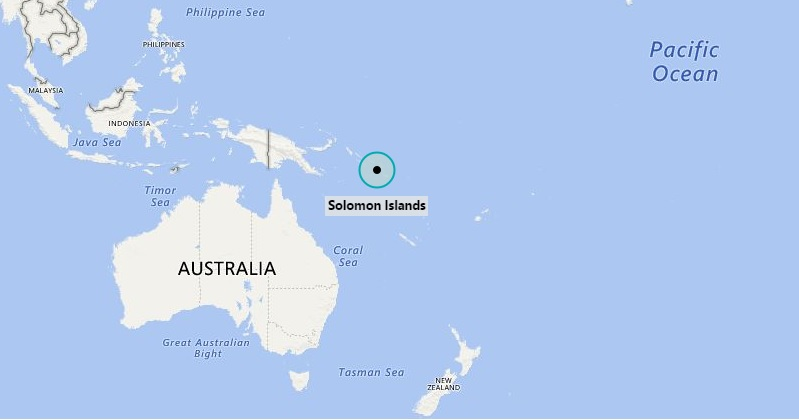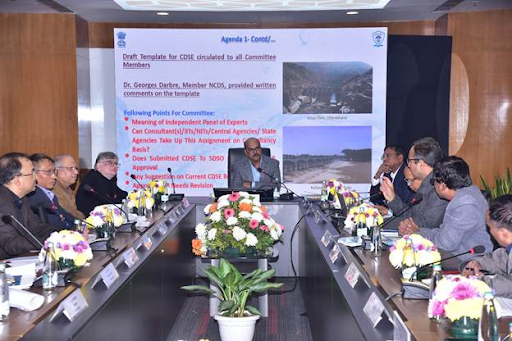Description

Disclaimer: Copyright infringement not intended.
Context
Concerns raised by Australia regarding China's plan to take a policing role in the Pacific Islands nation of Solomon Islands.
Details
- China plans to take a policing role in the Pacific Islands nation of Solomon Islands.
- The deal has raised concerns among the United States, Australia, New Zealand, and the opposition party in Solomon Islands.
- Prime Minister Manasseh Sogavare denies regional security threats and highlights China's focus on enhancing the capabilities of Solomon Islands' police force.
Australia's Response
- Australia has raised the issue with China's top diplomat, Wang Yi.
- Foreign Minister Penny Wong emphasizes the importance of security within the Pacific family.
- Australia urges transparency and calls for the immediate publication of the policing deal's details.
Solomon Islands' Perspective
- Prime Minister Sogavare's office states that Chinese police will supplement existing Australian and New Zealand policing support.
- The government fails to see the Chinese presence as a threat and highlights the need for improving the islands' policing following previous riots in Honiara.
- Sogavare pledges support for China's Global Development Initiative and Global Security Initiative policy.
Opposition and Concerns
- Opposition leader Matthew Wale raises concerns about the compatibility of Chinese and Pacific policing, emphasizing the importance of upholding human rights and due process.
- Meg Keen, director of the Lowy Institute's Pacific Islands program, highlights the criticality of responsible use of policing equipment, particularly guns and water cannons.
Strategic Significance and Regional Tensions
- Solomon Islands, with a population of 700,000, occupies a strategic position in the Pacific Islands.
- Historical ties to the U.S. and concerns over China's naval ambitions in the region contribute to increased tensions.
- Worries arise regarding the potential clash of interests between China and the U.S., with the Solomon Islands caught in the middle.

About Solomon Islands
- Solomon Islands is a nation located in the Pacific Ocean, northeast of Australia.
- It consists of an archipelago of islands, with Honiara as its capital and largest city.
- The country has a population of approximately 700,000 people.
- Solomon Islands is known for its diverse cultures, languages, and traditional practices.
Strategic Importance in the Pacific Region
- Solomon Islands holds a strategic position in the Pacific Islands region.
- It was pivotal in World War II as a base for the U.S. military's move westward to liberate the Philippines.
- The country's location has geopolitical significance, attracting the attention of major global powers.
Political Context and Government
- Solomon Islands is a constitutional monarchy with a parliamentary system.
- The Prime Minister is the head of government, elected by the Parliament.
- Political stability has been a challenge in the past, with occasional changes in government.
Socio-Economic Factors
- The economy of Solomon Islands is primarily based on agriculture, fisheries, and forestry.
- Key exports include timber, fish, palm oil, and cocoa.
- Tourism also plays a role in the country's economy, with visitors attracted to its natural beauty and cultural heritage.
- Despite its natural resources, Solomon Islands faces economic challenges, including limited infrastructure and high unemployment rates.
Regional Relationships and Security Concerns
- Solomon Islands maintains close ties with neighboring countries, particularly Australia and New Zealand.
Challenges and Development Initiatives
- Solomon Islands faces various challenges, including limited access to healthcare and education services.
- The government is focused on development initiatives to address these challenges and improve the well-being of its citizens.
- Infrastructure development, capacity building, and attracting foreign investments are among the key priorities.
Cultural and Natural Heritage
- Solomon Islands is known for its rich cultural heritage and traditional practices.
- The country offers opportunities for eco-tourism, with pristine beaches, coral reefs, and diverse marine life.
- Cultural festivals, arts, and crafts are integral parts of the local identity and attract visitors from around the world.
|
PRACTICE QUESTION
Q) Discuss the geopolitical significance of Solomon Islands in the Pacific region, its regional relationships, and the potential implications of China's involvement in the country's policing. (150 words)
|

reuters.com/world/asia-pacific/solomon-islands-says-chinese-police-assist-cyber-community-security-2023-07-14/










